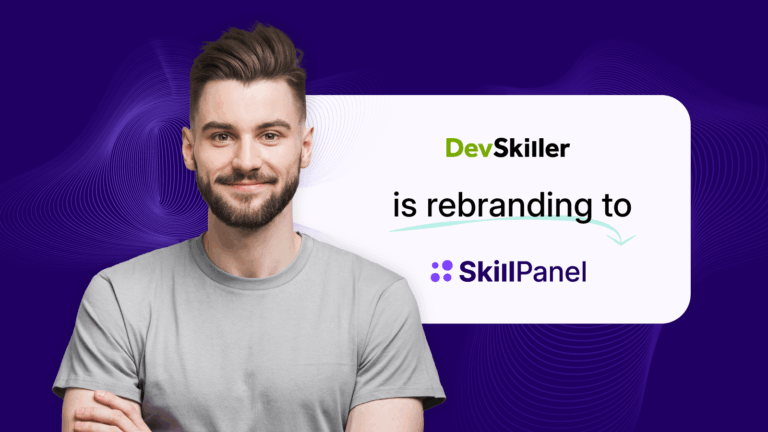
Career development tools – 2026 Guide & resources

Professional growth has become critical for career survival. While 70% of employees say their company’s L&D offerings need improvement, companies investing in modern career development tools report powerful returns. IBM research shows every $1 invested in online training yields about $30 in increased productivity, while 42% of companies report revenue increases after implementing eLearning.
30-day quick implementation plan:
- Week 1: Complete a comprehensive self-assessment and skills evaluation
- Week 2: Set SMART career goals and choose a primary development platform
- Week 3: Begin targeted skill development and optimize professional profiles
- Week 4: Initiate networking activities and establish accountability systems
- Understanding career development tools in 2026
- ROI and effectiveness: Why career development tools drive results
- Proven success stories: Real-world implementation results
- 2026 AI-powered career development tools
- Essential self-assessment and discovery tools
- Professional branding and networking excellence
- Job search optimization and interview mastery
- Implementation framework: Your 30-day action plan
- Future-proofing your career development strategy
- Key success metrics and measurement
Understanding career development tools in 2026
Modern career development tools represent sophisticated ecosystems that connect skills assessment to continuous development pathways. DevSkiller emphasizes assessment methods that mirror real work, use AI-driven analytics, and connect skills evaluation to continuous career development, moving beyond abstract evaluations toward authentic skill measurement.
The urgency for strategic career development has intensified. 44% of employees aged 18–34 are considering leaving their job due to insufficient training and development, while less than half (46%) of employees feel their employer provides adequate opportunities to learn new skills. Organizations bridging this gap see remarkable improvements in retention and performance.
Technology disruption has fundamentally altered career trajectories, making adaptive learning strategies essential. 84% of employers were satisfied with hires made using skills tests, compared with 80% overall satisfaction, reinforcing the shift toward skills-based evaluation and development.
ROI and effectiveness: Why career development tools drive results
Recent 2024-2025 data reveals compelling returns from strategic career development investments:
Productivity and revenue impact: Every $1 invested in online training yields about $30 in increased productivity, while 42% of companies report revenue increases after implementing eLearning. These outcomes stem from quicker skill application and reduced training time.
Retention and engagement: 86% of HR professionals believe training and development is an effective strategy for retaining top talent. However, engagement remains critically low, with only 21% of employees engaged globally in 2024, creating opportunities for organizations that invest in meaningful development.
Promotion and internal mobility: 75% of employees believe those with more proactive, supportive managers are more likely to be promoted, yet over half (53%) say their managers are not equipped to help advance their careers. Career development platforms increasingly target this gap through manager enablement and skills visibility.
Proven success stories: Real-world implementation results
Case Study 1: UMass Amherst Isenberg School – Virtual job simulations
Implementation: UMass integrated Forage virtual job simulations into their uConnect-powered career center throughout 2023-2024, requiring at least one simulation in mandatory career development courses while providing advisor-led recommendations.
Results: 242% increase in engagement with Forage, reaching nearly 3,000 exits from the virtual career center to Forage in 2023–2024. Top simulations included Electronic Arts Product Management, JPMorgan Chase Excel Skills, and lululemon Omnichannel Marketing.
Key lessons: Embedding experiential tools into required coursework drives adoption at scale, while curating by audience and keeping learners within the career center reduces friction and boosts engagement.
Case study 2: HealthCare Plus – VR training implementation
Implementation: HealthCare Plus deployed virtual reality training simulations during 2023-2024, allowing employees to practice procedures in risk-free environments as part of a broader engagement strategy.
Results: Improved employee skills and higher engagement due to more interactive, enjoyable learning experiences, with VR making training more immersive and practical.
Key lessons: Immersive, practice-oriented tools simultaneously advance capability and engagement, particularly for procedure-heavy roles.
Case study 3: FinServ Corp – AI-personalized learning
Implementation: FinServ Corp implemented an AI system analyzing each employee’s skills, strengths, and gaps to build tailored learning paths throughout 2023-2024.
Key lessons: Personalization at scale via AI raises relevance, which drives completion and ongoing usage.
2026 AI-powered career development tools
The latest AI-powered career development tools launched in 2024-2025 focus on three key areas:
AI career coaches:
- Career copilot (beta, 2025): An AI “career guidance counselor” that analyzes your skills and experience to suggest personalized career paths, identify skill gaps, and surface market insights. Currently in beta with waitlist access.
- AcademyOcean AI Career Path Generator: Uses AI to recommend career paths aligned to your skills/interests and generates development plans with personalized skill assessments.
Skills assessment and intelligence:
- Cornerstone Skills Graph: Enterprise skills intelligence uses AI/ML and a 50,000+ skills dataset to map employee skills to roles and recommend targeted training, enabling automated skills-to-role matching.
Personalized Learning Platforms:
- LinkedIn Learning AI Skill Pathways (2025): Offers tailored AI education pathways with AI-powered coaching and dynamic learning paths. Results show LinkedIn Learning customers see 98% higher annual growth in AI skill development than nonusers.
- CYPHER Learning with Copilot: AI-driven course creation and adaptive learning with Copilot generating course outlines/content in 50+ languages.
Essential self-assessment and discovery tools
Personality assessment platforms
Myers-Briggs Type Indicator (MBTI) provides foundational understanding of work preferences across four dimensions, helping users identify environments where they naturally thrive. Organizations use MBTI to improve team composition and communication strategies.
16Personalities offers modern, accessible personality assessment with practical career guidance. The platform provides specific strategies for workplace communication and professional growth tailored to each personality type.
CliftonStrengths focuses on identifying and developing natural talents rather than addressing weaknesses. This approach encourages building careers around innate abilities while seeking environments that allow strengths to flourish.
Advanced skills assessment
DevSkiller’s TalentBoost maps 3,000+ digital and IT skills to role competencies, supporting gap analysis, targeted learning paths, and measurable progression. This comprehensive approach links assessments to ongoing development and internal mobility.
Modern assessment tools emphasize practical evaluation over theoretical knowledge. DevSkiller prioritizes work-sample tests that replicate actual job tasks to predict on-the-job performance, moving beyond abstract puzzles toward authentic competency demonstration.
The surge in validated assessments reflects growing employer emphasis on verified competencies.
Comprehensive learning and development platforms
Leading online learning platforms
Coursera partners with universities and industry leaders to provide rigorous learning experiences from individual courses to full degrees. Career-focused programs include industry credentials designed with major employers, providing direct pathways to in-demand skills.
LinkedIn Learning leverages platform integration to provide highly relevant, career-focused content. The recommendation engine uses LinkedIn profile data to suggest learning paths aligned with career goals, while completed courses display as professional credentials.
edX emphasizes academic excellence through partnerships with Harvard and MIT. MicroMasters programs offer graduate-level learning in condensed formats, often providing pathways to full degrees while delivering immediately applicable skills.
Professional branding and networking excellence
Strategic LinkedIn optimization
LinkedIn profile optimization remains crucial for professional visibility. LinkedIn profiles that are complete make users 40× more likely to receive job opportunities, while 98% of employers research candidates online, demonstrating the importance of strong online presence.
28% of hiring managers say a candidate’s online profiles are among the most effective resources for finding talent. Strategic LinkedIn use involves consistent content sharing, thoughtful commentary, and proactive relationship building with industry leaders.
Advanced networking strategies
Professional networking has evolved beyond basic connection building. Mentoring linked to profitability and growth at scale: Among US Fortune 500 companies, those with mentoring programs had median profits over 2x higher than companies without mentoring.
Modern networking platforms provide sophisticated matching algorithms and structured interaction formats maximizing relationship development opportunities while minimizing time investment and social barriers.
Job search optimization and interview mastery
Strategic job search approach
Modern job search requires sophisticated strategies beyond basic job board browsing. Median time-to-results for active seekers: Half of Huntr users secured a first interview in 22 days and a first offer in 58 days, with focused approaches delivering faster results than mass applications.
Quality over quantity proves essential, with successful candidates averaging 6 days from application to interview and 8 days from interview to offer when targeting relevant opportunities strategically.
Interview preparation excellence
Interviewing.io provides anonymous technical interview practice with experienced interviewers from major technology companies, enabling skill development and confidence building through realistic scenarios and objective feedback.
Pramp facilitates peer-to-peer mock interviews providing mutual learning opportunities while building skills through both interviewing and being interviewed experiences.
Implementation framework: Your 30-day action plan
Week 1: Foundation building
Complete comprehensive self-assessment using personality and skills evaluation tools. Research target roles and industries while identifying specific development needs and career objectives.
Week 2: Platform selection and goal setting
Choose primary career development platforms aligned with your objectives. Establish SMART goals with specific milestones and success metrics while creating accountability systems.
Week 3: Profile optimization and skill development
Optimize professional profiles across chosen platforms while beginning targeted skill development through selected learning resources. Update resume and portfolio materials reflecting current capabilities.
Week 4: Networking and system implementation
Initiate strategic networking activities through professional platforms and industry events. Establish regular review processes and progress tracking systems supporting sustained development.
Future-proofing your career development strategy
Emerging technology integration
Global enterprise enrollments in Generative AI training surged 2022–2024, demonstrating organizational investment in AI-related skill development as competitive advantage.
Virtual reality career exploration enables realistic job shadowing and workplace simulation, providing authentic career exploration experiences without traditional barriers including geographic limitations.
Blockchain credentialing provides secure, verifiable digital credentials enabling tamper-proof documentation of achievements while simplifying credential sharing across organizations.
Market growth and investment trends
Global career guidance platforms are projected at approximately USD 3.88 billion in 2025, with growth to USD 7.15 billion by 2033, reflecting expanding recognition of structured career development as essential for both individual success and organizational competitiveness.
The personality assessment solution market reached USD 5.62B in 2024 and is projected at USD 6.31B in 2025, demonstrating continued growth in validated assessment solutions supporting career development and hiring decisions.
Key success metrics and measurement
Track your career development ROI through specific metrics: skill assessment improvements, certification completions, networking connection quality, job search efficiency, and advancement opportunities. Over 10,000 organizations—including more than 50% of Fortune 500—use Workday HCM for comprehensive career development management.
Regular progress reviews ensure strategy effectiveness while providing opportunities for course correction based on changing objectives and market conditions. Successful career development requires systematic approach combining the right tools with consistent execution and strategic adaptation.
The future belongs to professionals who proactively manage career development through strategic tool utilization, continuous learning, and systematic networking. By implementing these frameworks and leveraging the sophisticated tools available today, individuals can create sustainable competitive advantages while building rewarding, adaptable careers that thrive in dynamic professional environments.




